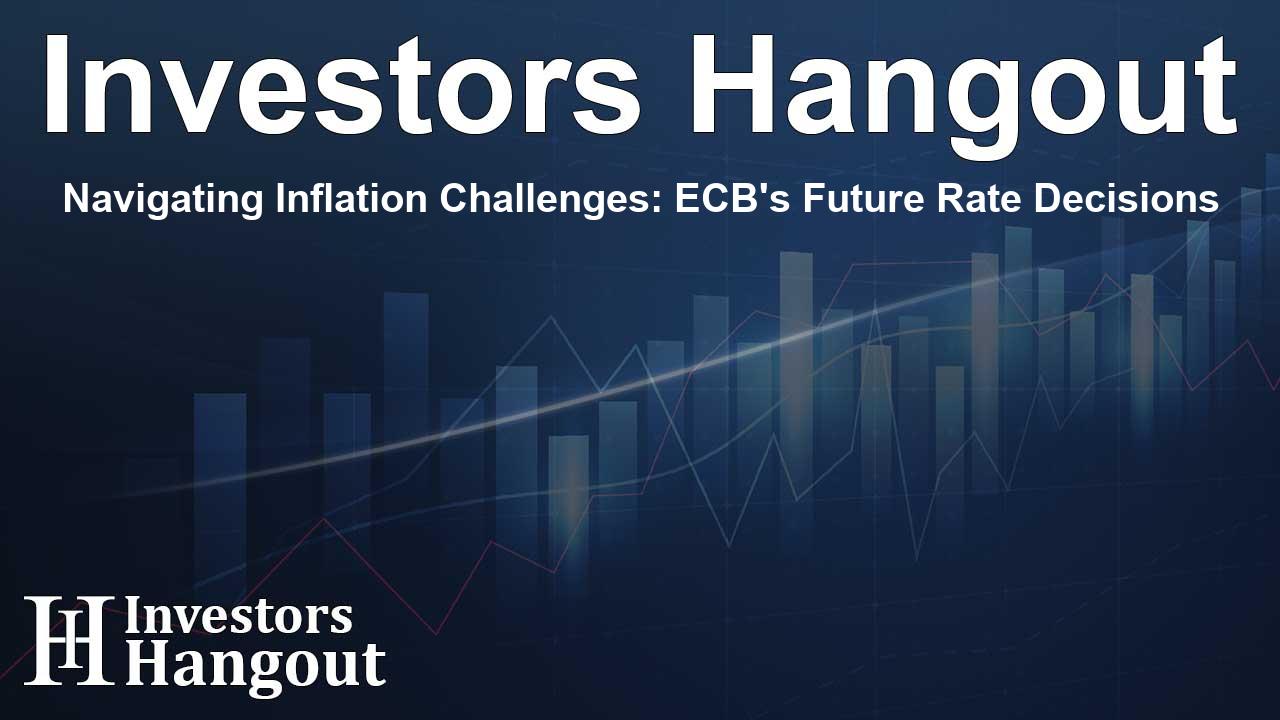Navigating Inflation Challenges: ECB's Future Rate Decisions

Understanding the ECB's Current Challenges with Inflation
The European Central Bank (ECB) is facing scrutiny as recent discussions reveal a growing divide among its members regarding inflation control. The latest minutes from their June meeting highlight the bank's concern over the potential undershooting of its inflation targets, with some members emphasizing this issue more than others.
President Christine Lagarde's recent communication regarding these challenges underlines the ECB's ongoing dedication to monitoring economic indicators closely. Below, we delve into key takeaways from the discussions and what implications this may have for future monetary policy.
Key Themes Emerging from the ECB's June Meeting
The minutes provide insight into two primary debates within the ECB. The first concerns the current stance of monetary policy—is it still neutral or moving toward an accommodative state? This question arises even though President Lagarde refuted past interpretations suggesting a move toward accommodation.
The second debate focuses on whether undershooting inflation should be treated as a significant concern. This conversation may have differed had the ECB maintained a price level target instead of a straightforward inflation target.
Inflation Trends and Projections
From the discussions documented, it seems that members are worried about the projected undershoot of the inflation target over the next couple of years. Some expressed concerns that the anticipated decrease in inflation could continue for 18 months, extending the worry into the medium term. This could present challenges for economic recovery and growth.
Monetary Policy Stance: Neutral or Accommodative?
Another significant discussion revolved around whether the ECB's monetary policy had transitioned to an already accommodative stance following multiple rate cuts. Supporters of this view reference the upturn in credit growth as evidence of a shift in the monetary landscape.
However, a portion of the members argued for maintaining current interest rates, suggesting that recent inflation trends are temporary and largely influenced by volatile factors like energy prices and exchange rates.
Future Rate Decisions: What to Expect
Looking ahead, the ECB is poised for another potential rate cut in September. In their recent assessments of monetary policy, they have emphasized the importance of scenario analysis in a landscape filled with economic uncertainty.
The ECB appears ready to take a cautious approach, preparing to pause the current rate-cutting trend while consistently evaluating economic signals. Lagarde previously indicated that the ECB presently finds itself in a stabilizing position, but external pressures, especially from a strengthening euro, could complicate matters.
External Influences on ECB’s Decisions
The strengthening euro presents both challenges and opportunities. While it may bolster purchasing power, it can also act as a barrier to achieving favorable inflation rates, thereby aggravating the ECB's efforts. The crucial question seems to not be “if” they will cut rates further, but rather “when” and “by how much.”
Possible escalating trade tensions and economic stagnation within the eurozone may prompt the ECB to act more decisively and potentially increase the scale of its rate cuts. However, should there be no significant disruptions and inflation stabilizes, the outlook might brighten, with the ECB potentially curtailing further cuts sooner rather than later.
Conclusion: A Complex Road Ahead for the ECB
In summary, the minutes from the ECB meeting indicate that discussions on monetary policy are becoming increasingly intense. The interplay between external economic factors, especially the euro's strength, raises the stakes regarding inflation targets and future interest rates. The path forward will depend heavily on how these dynamics unfold in the coming months. As economic indicators evolve, the ECB's adaptability will be pivotal in navigating through these uncertainties.
Frequently Asked Questions
What is the main concern regarding inflation for the ECB?
The ECB is worried about potential undershooting of its inflation targets, which could persist for an extended period impacting growth.
What are the two primary debates among ECB members?
One debate centers on whether monetary policy is still neutral or already accommodative, while the other involves the significance of inflation undershooting.
What does the strengthening euro mean for the ECB?
A stronger euro may help combat inflation but also serve as an additional hurdle in achieving balanced economic growth.
How many rate cuts has the ECB implemented in recent times?
The ECB has implemented multiple rate cuts, analyzing the impacts on credit growth and overall economic health.
What is the expected outcome for the ECB’s interest rates in September?
The market anticipates that the ECB may cut rates again in September, depending on evolving economic conditions.
About The Author
Contact Thomas Cooper privately here. Or send an email with ATTN: Thomas Cooper as the subject to contact@investorshangout.com.
About Investors Hangout
Investors Hangout is a leading online stock forum for financial discussion and learning, offering a wide range of free tools and resources. It draws in traders of all levels, who exchange market knowledge, investigate trading tactics, and keep an eye on industry developments in real time. Featuring financial articles, stock message boards, quotes, charts, company profiles, and live news updates. Through cooperative learning and a wealth of informational resources, it helps users from novices creating their first portfolios to experts honing their techniques. Join Investors Hangout today: https://investorshangout.com/
The content of this article is based on factual, publicly available information and does not represent legal, financial, or investment advice. Investors Hangout does not offer financial advice, and the author is not a licensed financial advisor. Consult a qualified advisor before making any financial or investment decisions based on this article. This article should not be considered advice to purchase, sell, or hold any securities or other investments. If any of the material provided here is inaccurate, please contact us for corrections.
